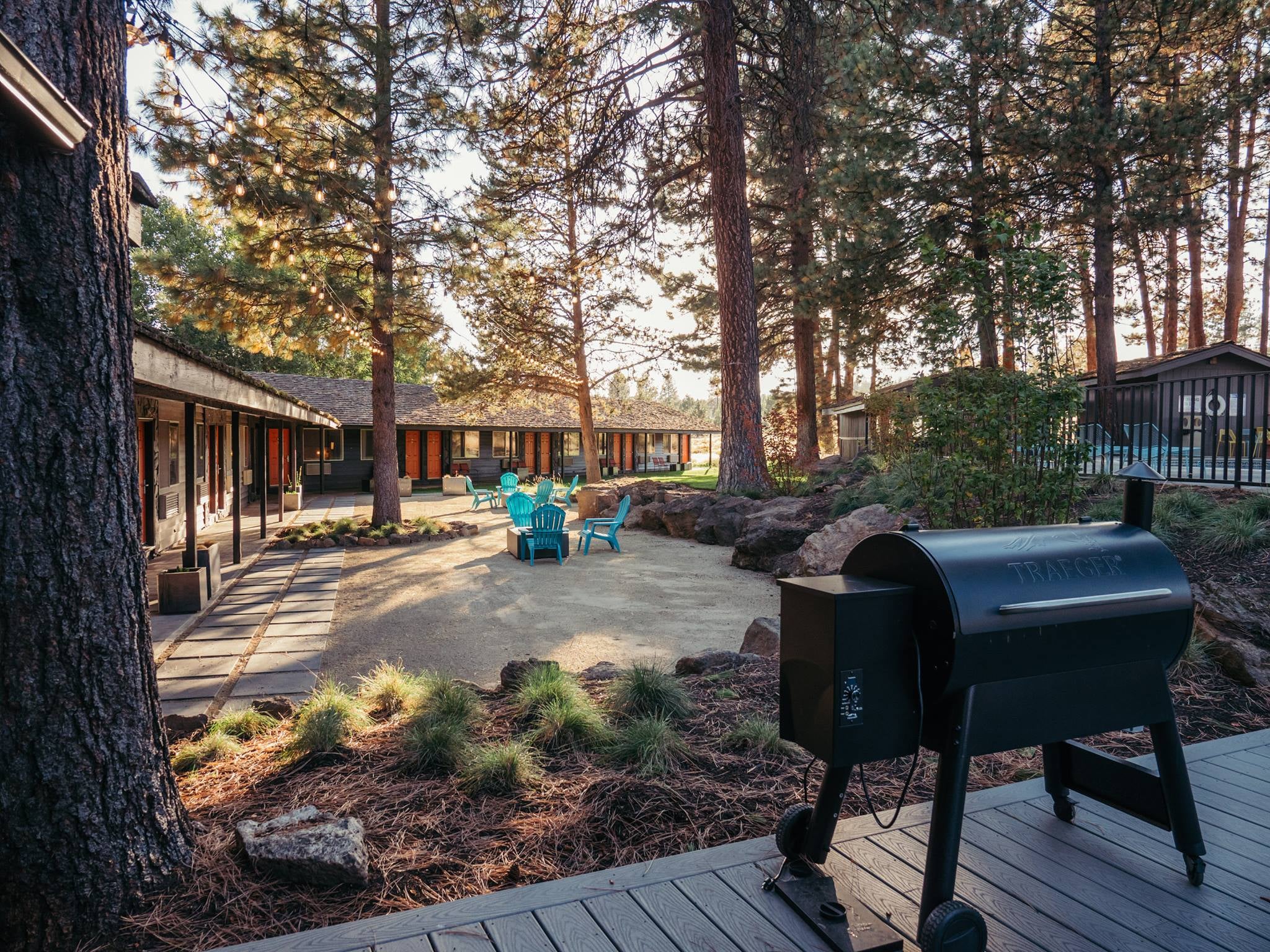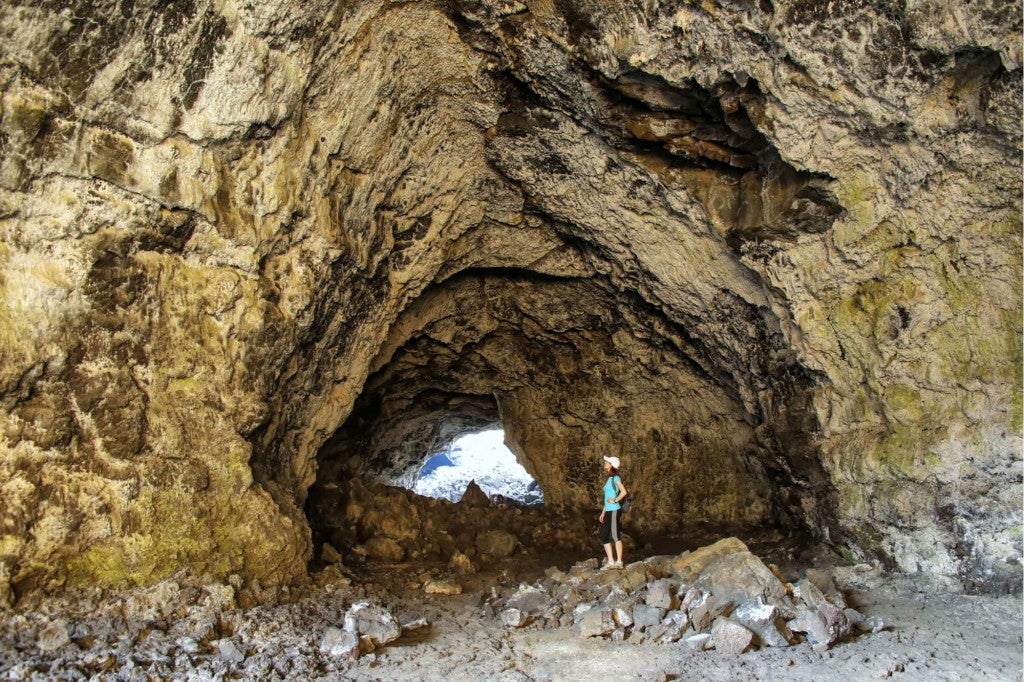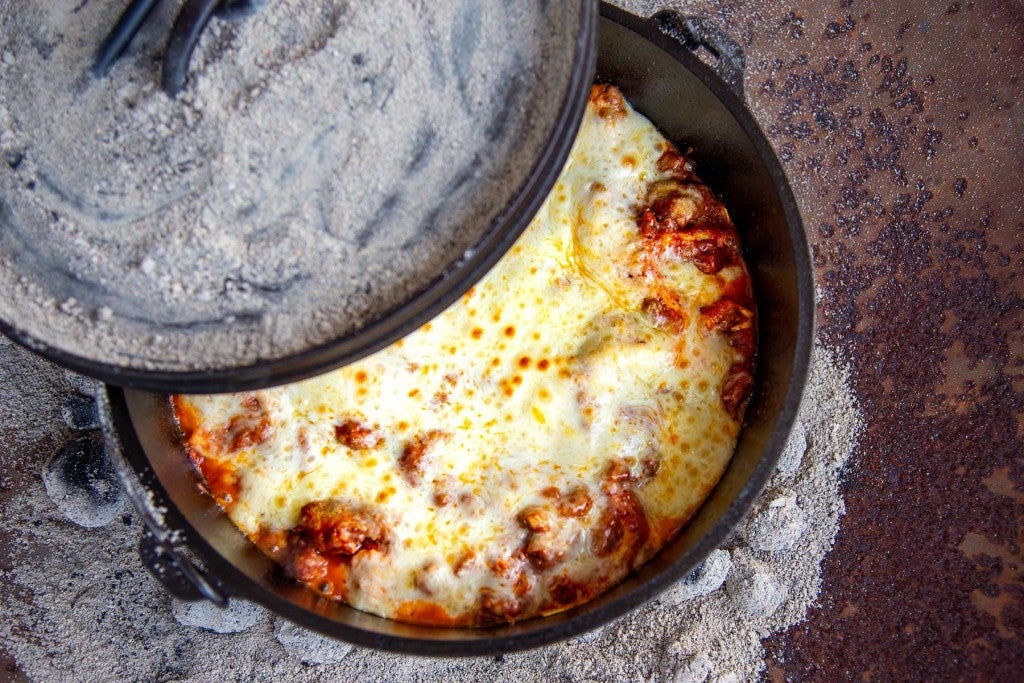As campers, most of us can get on board with secluded nights in the tent, camper, or RV. But sometimes it’s nice to post up at a hotel and live with simple luxuries for a while. The challenge there is balancing a passion for the outdoors with the hotel-luxe amenities and treatment.
Meet LOGE Camps: a hotel group, aiming to attract those who love the outdoors (LOGE stands for Live Outside Go Explore), and a business model unique to the camping and travel industry. You’ll find everything from fire pits to coffee bars at LOGE locations, all with nearly unrivaled access to outdoor destinations.
We chatted with some of the folks from LOGE Camps to get a better idea of what they’re all about and for a glimpse into the process of creating these camp- and outdoor-oriented hotels.
Why LOGE Camps Merge Camping with a Hotel Model
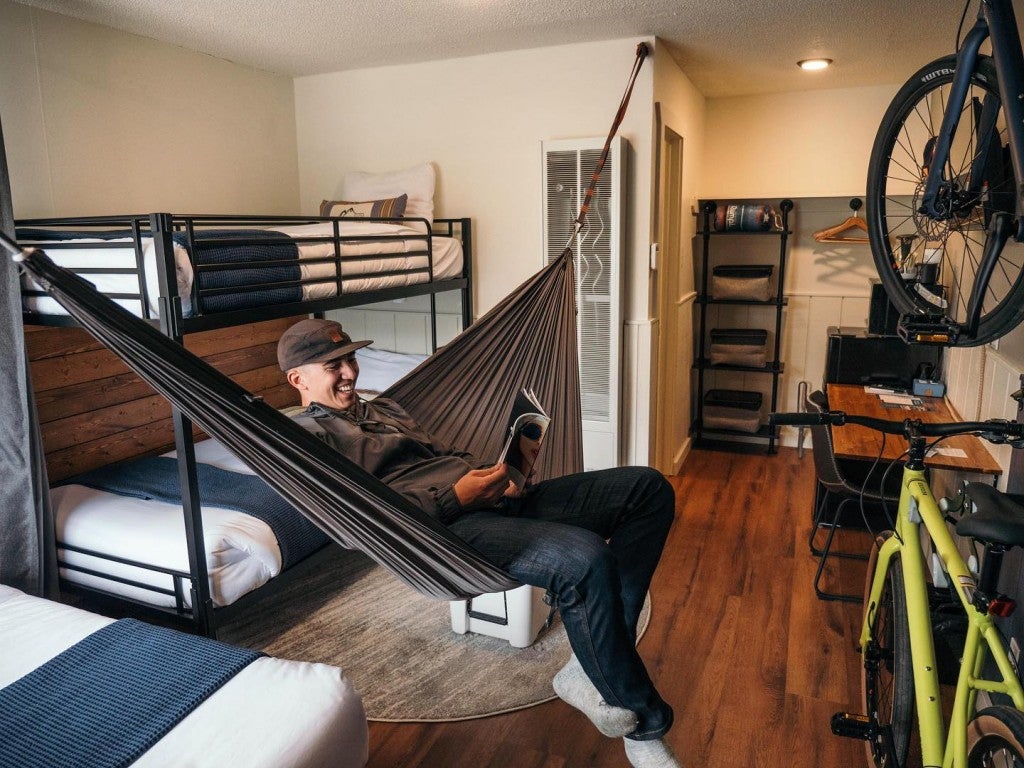
Image from LOGE Camps.
From the coast of Washington to the high desert terrain of Oregon, and a handful of places in between, you’ll find LOGE Camps perfectly situated in outdoor recreation hubs. Visitors enjoy amenities like comfy beds, full bathrooms, access to coffee bars and beer on tap, and even live music at LOGE. Aside from these somewhat unsurprising hotel amenities, LOGE also offers an array of gear rentals, outdoor community fire pits, and gear items—like coolers and hammocks—available for use in each room. Bonus: Depending on the location, you’re likely to find hiking and biking trails, good surf, and even good skiing not far from your hotel door.
The Unique LOGE Camps Business Model
LOGE locations are not built from the ground up. Instead, the company finds dilapidated motels in towns known for outdoor adventure and converts them into these dreamy accommodations. When it comes to the remodel, LOGE doesn’t simply tear down and rebuild. They use as many existing materials as possible, and they do this for two primary reasons: to save on costs and keep prices low for guests, and to be more environmentally friendly by using and recycling any parts of the existing structure that are still in good shape.
Another important aspect of their business model is their commitment to becoming an integral part of the community in each LOGE location. The coffee bars, fire pits, live concerts, and other activities are all open to locals and visitors, even if they’re not staying at a LOGE Camp. The hope is that not only will locals have a fun new place to hang, but that tourists and locals will have the chance to mingle, share local recommendations, and hopefully make a new friend or two in the process.
On top of that, LOGE strives to give back to the local community. This looks different for each location; for some, it’s donating to trail maintenance or a local avalanche information center. The people over at LOGE recognize that bringing more people into an area for outdoor recreation puts more strain on that area, and they want to help manage that, all while keeping people stoked on exploring new (or familiar) places.
“Often the properties that we take over have become an eyesore to the community, and we pride ourselves on breathing new life into these places that we build, not only for our guests but also for the locals,” says G, the Content Director for LOGE. “We do our best to employ local builders, use local artists for artwork around the properties, and partner with food, coffee, and beer vendors that are local to the places we are in. Our giving program supports local non-profits doing incredible work in the outdoors, and we do our best to get involved with the local municipalities we enter, for example in Westport, WA one of our staff sits on the community planning board.”
What You Get When You Stay
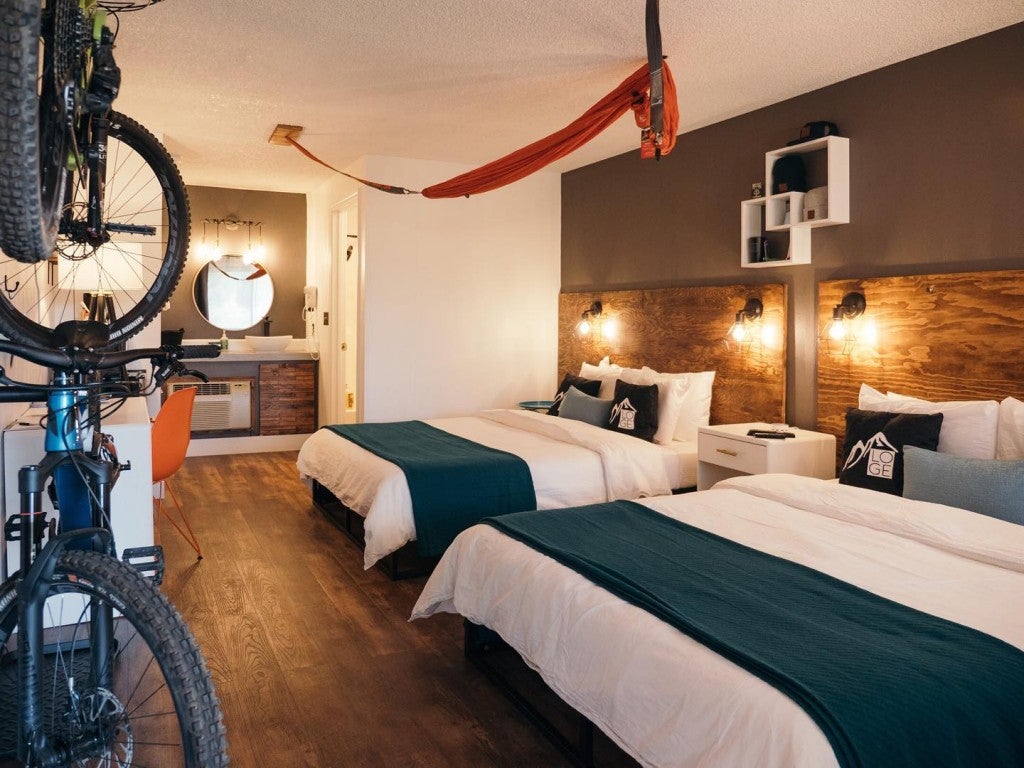
Image from LOGE Camps.
When you book at LOGE Camps, you’ll typically have a few different options to choose from for accommodation. Some locations offer camping, so you can book a campsite with access to the fun amenities that LOGE is known for. Or you can upgrade (without splurging too much) to a hostel-style bunk. This is perfect for younger folks who may be traveling solo or with a group of friends who don’t need all the amenities of a full hotel room but love the community aspect that LOGE offers.
Or, go all in and book a LOGE hotel room, also available at every location. While each specific hotel will vary in room size and bedding arrangements, all will have the same modern, outdoorsy style, each with amenities including a hammock, coolers, and cruiser bikes for guests to use on-site, and practical gear storage for each location (Westport has space to store your surfboard, Bend has a rack for your mountain bike, etc.).
Where to Find a LOGE Near You
Each LOGE Camps location has something a little different to offer, from camping to mountain biking to surfing or skiing. Here’s what you’ll find at each spot.
Bend, OR
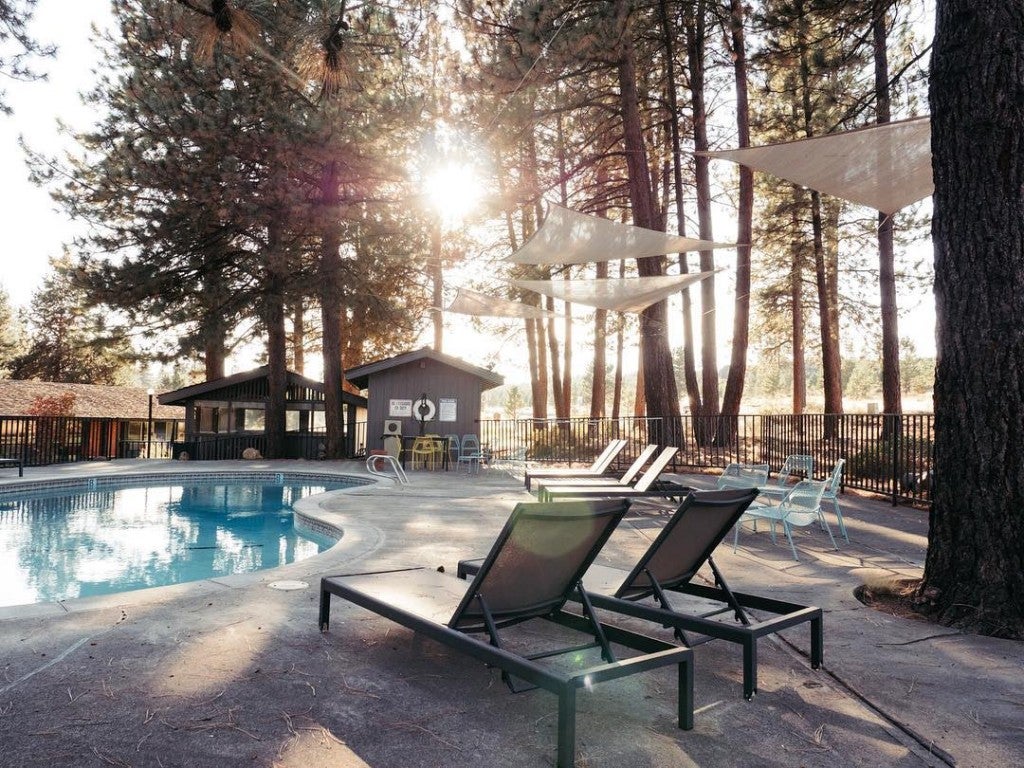
Image from LOGE Bend.
Bend, Oregon is the flagship location for LOGE Camps. The Bend hotel is located right in the midst of some of Oregon’s best mountain biking, and just down the road from Mount Bachelor, which offers great skiing in the winter.
The Bend location offers both hostel and hotel rooms for guests to book. Amenities specific to this location include a seasonal pool and hot tub, outdoor grilling areas, a coffee bar and local beer on tap, ski lockers, and bike rentals and retail from Evo gear. Bonus: The mountain biking shuttle picks up right from LOGE.
Mt. Shasta, CA
Near towering Mount Shasta in California, you’ll be able to adventure in some of the west’s best scenery, with dense forest and craggy high alpine terrain.
Mt. Shasta is one of LOGE’s newer locations; it currently offers the option to book hotel rooms and will soon offer hostel bunks and camping as well. Once completed, amenities at this location will include a coffee bar, a meeting room, cruiser bikes, on-site gear rentals, outdoor fire pits and grilling areas, and hot showers for campers.
Leavenworth, WA
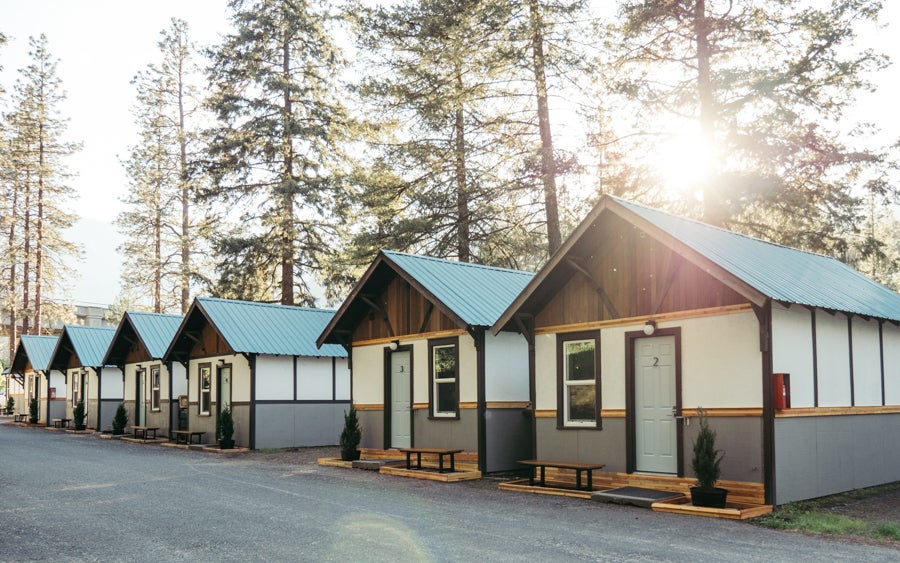
Image from LOGE Leavenworth.
Leavenworth is a quaint Bavarian-influenced mountain town nestled in some of Washington’s most spectacular mountains. From here you’ll find world-class mountain biking, scenic hiking, and great skiing in winter.
At this location, guests can book accommodation in small cabins, or in the hostel area. Amenities include gear rentals, cruiser bikes, a covered outdoor kitchen for grilling, and outdoor fire pits.
Westport, WA
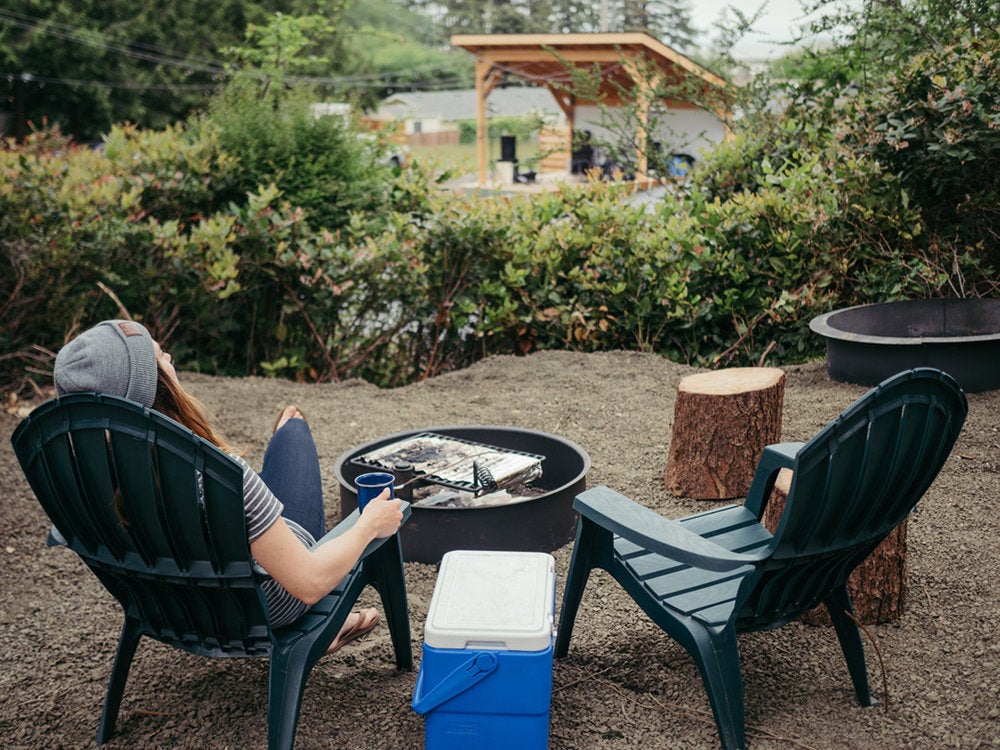
Image from LOGE Westport
The water may be cold, but just bring your wetsuit: This northwest beach town is known for great surfing. After catching some waves with the seals, a cup of coffee from the LOGE cafe will warm you back up.
LOGE’s Westport location offers hotel rooms, hostel bunks, tent camping and spots for RVs. You’ll find amenities like surf rentals, a coffee bar with beer and cider on tap, a wetsuit drying room, outdoor fire pits, cruiser bikes, and hot showers for campers.
Breckenridge, CO
LOGE’s newest location is on the edge of one of North America’s most popular ski towns. Breckenridge is known for high alpine, above-treeline skiing, and for being a town for the whole family to enjoy. But it’s not just about winter in Breckenridge—summers offer amazing hiking and mountain biking, all easily accessible from the LOGE location.
Scheduled to be open for business this September, the Breckenridge location will offer hotel rooms and hostel bunks. Guests will have access to a coffee bar with beers on tap, ski and bike rentals, gear storage, outdoor fire pits, cruiser bikes, and an outdoor area for live music in the summer.
The Dyrt is the only camping app with all of the public and private campgrounds, RV parks, and free camping locations in the United States. Download now for iOS and Android.Popular Articles:
Articles on The Dyrt Magazine may contain links to affiliate websites. The Dyrt receives an affiliate commission for any purchases made by using such links at no additional cost to you the consumer.

